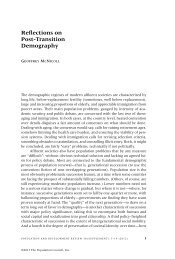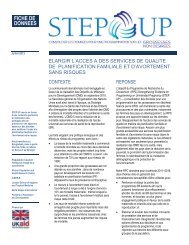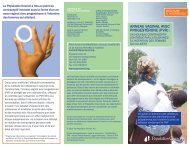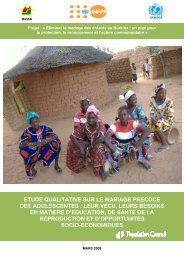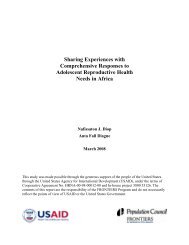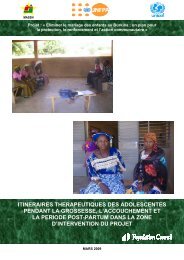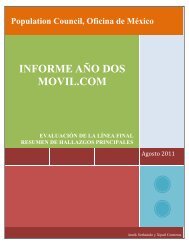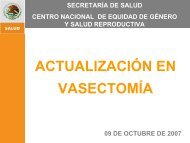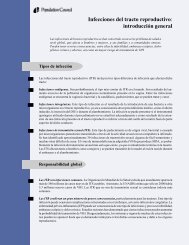Community Health Volunteer's Training Manual - Population Council
Community Health Volunteer's Training Manual - Population Council
Community Health Volunteer's Training Manual - Population Council
Create successful ePaper yourself
Turn your PDF publications into a flip-book with our unique Google optimized e-Paper software.
Module 1 The CHPS Concept<br />
30<br />
Exercise 1.2.3: Group work<br />
Objective<br />
1. To discuss communication channels<br />
used at the community level<br />
Time: 10 minutes.<br />
Questions<br />
1. What is a communication channel?<br />
2. What communication channels are<br />
available at the community level?<br />
3. What communication channels do you<br />
mostly use to deliver your messages?<br />
4. As volunteers, which channels do you<br />
mostly use to communicate?<br />
Box 1.2.4: Communication channels used at the community level<br />
• Talking drums<br />
• <strong>Community</strong> durbars<br />
• Gong-gong beating<br />
• Role plays<br />
• Home visits<br />
• Interpersonal interaction (One-on-one, face-to-face communication)<br />
• Small group discussions<br />
• Songs/poetry recitals<br />
• Dance drama<br />
• Public speaking<br />
Box 1.2.5: Skills for effective communication<br />
Instructions to the Facilitator<br />
1. Launch a brainstorming<br />
session by asking the<br />
questions in the box opposite<br />
2. Guide volunteers to list<br />
communication channels<br />
that are available at the<br />
community level for passing<br />
on information and receiving<br />
feedback<br />
3. List responses on a flip chart<br />
4. Compare the listed channels<br />
mentioned to those in Box<br />
1.2.4. below and update<br />
Skills for gathering and analysing information<br />
The volunteers will have to look for information about issues affecting the health of the<br />
community. This will give them facts that they can use to influence the leaders and<br />
community members about health issues. They must therefore know how to gather and<br />
analyse information<br />
Listening skills<br />
A good communicator listens more and talks less. A volunteer must learn to practise this<br />
all the time. Encourage people to express their views and be prepared to answer difficult<br />
or embarrassing questions and remarks to the best of your ability. Whenever you are<br />
dealing with more than one person, give the opportunity to others to answer questions<br />
thrown at you. This is another way of making sure that everyone is paying attention. You<br />
need to maintain your confidence throughout the communication process. Have an open<br />
mind to learn from others. Also appreciate the fact that others may know more than you.<br />
Remember that a good listener learns new things all the time



